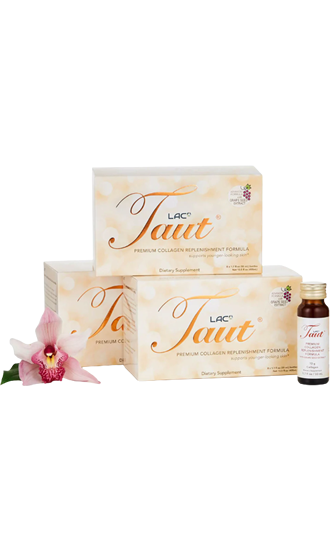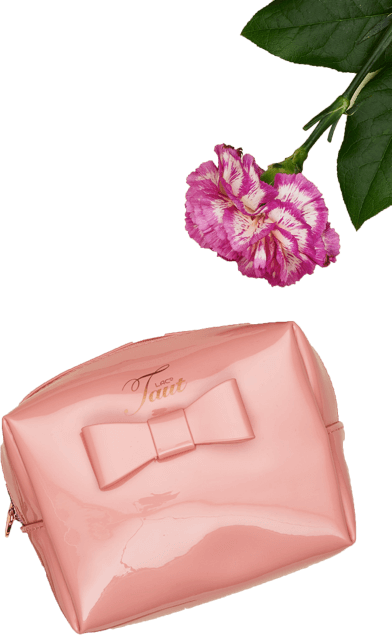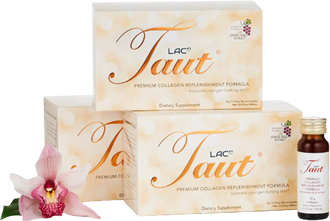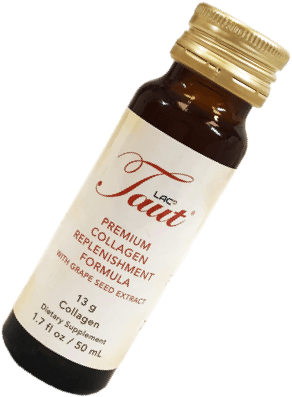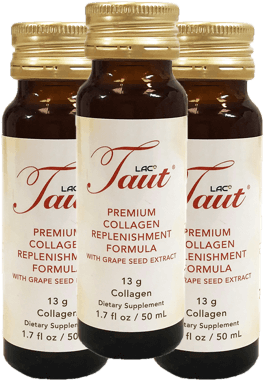Best Skincare Ingredients Checker: Skin Care Product Database & Dictionary (Natural & Not)
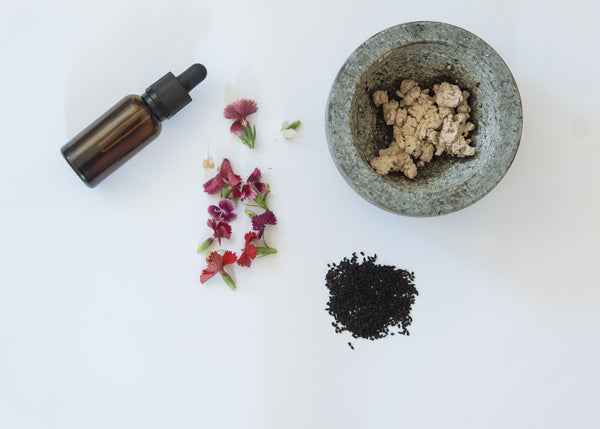
The beauty landscape is an ever-shifting terrain that goes through revolutionary changes every year, and skincare ingredients are no exception!
From injectables to ingestibles, and, of course, topicals, this complex industry is launches new skincare products on a weekly, if not daily basis.
Unfortunately, as consumers, it can be challenging to navigate skin care ingredients and find the best luxury skin care products.
From plant-based to lab-made, the wealth of complicated names listed in the ingredients section of a product can be overwhelming. And, to make matters worse, it’s our responsibility to research what is good for our skin and what shouldn’t make the cut when choosing our products.
But, how can we know what is good for us and what isn’t? Well, we’ve created this skincare ingredients dictionary that you can use as your go-to resource when choosing your products.
To simplify things, we’ve even listed them in alphabetical order so you can get the information you need as quickly as possible.
A Comprehensive List of Must-Know Skincare Ingredients
As a Premium Luxury Skin Care Company, we wanted to provide a skincare ingredient checker that includes the good, bad, and the ugly of the cosmetic world.
It’s designed to be a comprehensive cosmetics checker that you can refer to in order to better understand the components that you should and shouldn’t use if you want to maintain a radiant and youthful complexion.
So, from A to Z, here it goes:
Activated Charcoal
Present in health drinks, toothpastes, masks, cleansers, and face serum, activated charcoal is a natural absorbent that works wonders on the skin. By sponging up excess oil and dirt from the pores, this form of carbon can help prevent acne breakouts while leaving you with a youthful glow.
Alcohol
Designed to deliver other substances found in skin care products deeper into the dermis, alcohol is a group of organic compounds from various sources. High molecular weight alcohols work wonders by dissolving excess oil and tightening the pores. Oftentimes, they're added to moisturizing products and gel-like solutions.
However, there are some bad alcohols that can leave the skin dry, sensitive, and damaged. Some of the alcohols worth avoiding in personal care products include:
- Ethyl or ethanol alcohol
- Methanol alcohol
- Denatured alcohol
- SD alcohol
- Benzyl alcohol
- Isopropyl alcohol
More helpful reading: What Ingredients Should Not Be Mixed With Skincare
Algae Extracts
There are hundreds of different algae extracts commonly used in personal care products. These extracts provide creams, gels, masks, makeup, face serum, and shampoo with their gelatinous consistency. However, the majority also offer other skin healing benefits.
Agar is a popular gel-like, algae-derived ingredient that is used for its thickening capabilities. It also provides minor antioxidant benefits.
Another thickener is algin which can be found in the coating of face serum, peels, and masks.
Alguronic acid, on the other hand, is a sustainable and naturally sourced algae that claims to brighten and firm the skin while also reducing the visibility of wrinkles and fine lines.
Last but not least on this list is laminaria saccharina, a type of sea algae that soothes the skin while minimizing oil residue.
Typically, all of these algae extracts are good for the skin as long as they are sourced naturally. They provide a wealth of health benefits and are a great addition to skincare products.
Allantoin
A chemical found in plants such as chamomile, sugar beet, and wheat sprouts, allantoin is a moisturizing agent that prevents dryness and irritation, making it a great option for those with sensitive skin.
Able to separate and soften the tougher outer layers of the skin, allantoin also acts as a mild exfoliant and helps with collagen synthesis, thus improving overall skin texture and tone.
Find out about the benefits of dry brushing the body by RenewSkin, Inc.
Aloe Vera
If you’re looking for a skincare ingredient that has been studied at length for its soothing and hydrating properties, aloe vera is a plant-based alternative that you will find in a myriad of products.
From aftersun to face serum, creams, and even shampoos and conditioners, aloe vera is a refreshing addition great for reducing skin irritation.
More helpful reading: How to use sunscreen
Alpha-Hydroxy Acids (AHAs)
Used in an array of non-prescription personal care products, alpha-hydroxy acids (AHAs) help reduce the visibility of fine lines, wrinkles, age spots, irregular pigmentation, and enlarged pores. Manufactured both synthetically and naturally from fruit sugars and milk, these acids aid in brightening dull-looking skin.
One of the most common AHAs used is lactic acid. Manufactured from fermented milk, this AHA exfoliates the skin, thus breaking down the glue that holds dead skin cells together. It is a gentle acid that is particularly good for those with skin sensitivities.
Second on the list of most common alpha-hydroxy acids is citric acid which works as a natural preservative. Derived from citrus fruits, this ingredient adds a zing to personal care products such as masks, peels, and washes. By exfoliating the top layers of the skin, it also encourages collagen formation (more on collagen soon!).
Another natural alpha-hydroxy acid is mandelic acid which is made from bitter almonds. Oil-soluble, this AHA penetrates deep into the pores, clearing out any excess dirt. Because of its molecular composition, it is very gentle on the skin and is non-irritating.
While the number of alpha-hydroxy acids extends much further than those mentioned here, another one worth highlighting is glycolic acid. Derived from sugarcane, glycolic acid is used in higher-end products to exfoliate the skin and improve its tone. By exfoliating the skin, glycolic acid aids with congestion and removes dead skin cells, giving new skin the chance to develop and breathe.
More helpful reading: Top 13 Skin Care Ingredients to Avoid
Alpha Lipoic Acid (ALA)
Alpha-lipoic acid is a fatty acid naturally present in every one of the cells in our bodies. It has shown to penetrate into the walls of our skin cells which allows it to contribute to the smoothness of our skin. In the beauty world, ALA is known as the miracle in a jar.
Experts believe that the fact that it is a potent antioxidant is a sign the ingredient can provide incredible protection against free radical damage, and in turn, the early signs of skin aging. Aside from minimizing fine lines and wrinkles, ALA can boost other antioxidants such as vitamin C, thus providing our skin with a healthy glow.
More helpful reading: The Best Vitamins for Skin to Repair Elasticity & Dryness
Aluminum
Aluminum is found in a huge variety of beauty products but, it’s actually not good for our skin or our overall health. The effects of this toxic metal mimic those of estrogen, tricking our body, and potentially having a negative impact on our endocrine system. It is, therefore, best avoided.
Amino Acids
Amino acids are the building blocks of all of the proteins in our bodies. They make up collagen and elastin, two important factors of skincare that are affected by environmental stressors like free radicals. As we age, our amino acid levels decrease and our skin starts to lose volume and become less supple.
Today, certain amino acids are added to personal care topicals to support the body’s collagen production and boost skin health. These include:
- Arginine
- Carnitine
- Copper peptides
- Tranexamic acid
Copper peptides, in particular, supports collagen formation while also protecting current collagen from free radical damage.
Antioxidants
Antioxidants are our armor against free radicals and other external pollutants. They come in both natural and synthetic form and they require a skincare ingredients database of their own! Some of the most commonly used natural antioxidants used in the beauty industry include:
- Green tea
- Vitamin E
- Flavonoids
- Glucosamine
- Goji extract
- Acai
- Grape seed extract or oil
- Marula oil
- Phytonutrients
- Plant stem cells
- Pomegranate
- Avena sativa
- French pine bark
- Idebenone
If like us, you prefer to avoid synthetic components wherever possible, we recommend you avoid idebenone.
More helpful reading: Good skin tips by RenewSkin Co
Argan Oil
Taken from the kernels of the argan tree, argan oil is rich in skin health-boosting fatty acids and the antioxidant vitamin E. Able to moisturize the dermis without clogging the pores, this fast-absorbing skin care ingredient can do everything from strengthening the nails to smoothing the hair, and of course, revitalizing the skin.
More helpful reading: How to treat dry scalp
Benzoyl Peroxide
Well known for fighting against breakouts, benzoyl peroxide can be found in cleansers, washes, foams, lotions, and gels. Available in different concentrations, the ingredient works by killing bacteria under the dermis so works particularly well for the treatment of inflammatory acne.
But, it also comes with possible side effects!
While safe for use by most people, benzoyl peroxide has been shown to be extremely harsh and can leave you with dry and red skin. You may experience itching or general irritation. If you’re planning on using it to treat breakouts, we recommend you consult with your dermatologist as they should be able to recommend a more natural alternative.
Beta-Hydroxy Acids (BHAs)
Beta-hydroxy acids are exfoliants that penetrate deeply into the pores to clear away debris, whiteheads, and blackheads. The most commonly used BHA in beauty products is salicylic acid.
Salicyclic acid can be found in your non-prescription moisturizer, cleanser, and acne treatment solution. Great for use by those with skin sensitivities, the beta-hydroxy acid, salicylic acid, could be a great alternative to AHAs. Salicylic acid has shown to be less irritating while providing the same acne-fighting and skin health-boosting benefits.
Caffeine
Caffeine has received mixed reviews over the years but, researchers say that, when applied topically, it has shown to have soothing properties while also reducing puffiness around the eyes. Caffeine also increases blood flow and could, therefore, be helpful in smoothing the skin. This is also true of guarana, a caffeine-packed seed that you will find in creams, face serum, makeup, and other topicals.

Clay
Clay has been used for centuries as a topical wellness product. Derived from a variety of natural sources, clay works by absorbing excess oil and unblocking pores. In the beauty realm, the most popular type of clay is bentonite.
Also referred to as Montmorillonite, bentonite comes from volcanic ash sediments. It is most commonly found in detoxifying and purifying cleansers and contains a mound of antibacterial minerals that pulls grime and pollutants from the skin.
Kaolin is another clay-like mineral that helps reduce shine by absorbing oil on the skin.
Coenzyme Q10
Our bodies naturally produce the antioxidant Coenzyme Q10 (CoQ10). Unfortunately, as with most compounds with antioxidant properties, our natural production of CoQ10 diminishes as we get older, which only adds to the various reasons fine lines and wrinkles start to appear.
CoQ10 is an ingredient that you will find in moisturizers, creams, and face serum that has a number of anti-aging benefits. Designed to improve skin tone and protect cells, the ingredient will take you back in time, reducing the early signs of aging skin!
Collagen
If you’re looking for the best ingredients for skin health, collagen should definitely be on your list! Collagen makes up 80% of our skin. It contributes to our skin’s strength, smoothness, and firmness. In fact, good skin is often a sign of adequate collagen levels in the body.
Age, UV rays, and free radicals tear down collagen, negatively affecting our skin’s appearance. High-quality collagen added to moisturizers, facial masks, and supplements can boost our body’s ability to produce collagen, turning back the clock and reversing the early signs of aging.
It is a powerhouse ingredient that can help us achieve fuller and more radiant skin.
Hydrolyzed collagen is found in a range of beauty products. It plumps up and hydrates the skin. Broken down into smaller peptides, these proteins are more easily absorbed into the bloodstream and can, therefore, get where they need to be to work their magic.
Taut Collagen Mask is a luxurious hydrolyzed marine collagen, hyaluronic acid, squalene, and vitamin C-infused mask that helps to hydrate and brighten the skin. In just 15 to 20 minutes, this collagen mask provides instant skin rejuvenation and red carpet radiance.
Diethanolamine (DEA), Monoethanolamine (MEA), & Triethanolamine (TEA)
If you had to choose one group of chemical skin care product ingredients to avoid, diethanolamine (DEA), monoethanolamine (MEA), and triethanolamine (TEA) would be top of the list. Clear, free of color, and with a scent like that of ammonia (a sign of a harmful substance), this group of chemicals is common in foaming products such as facial scrubs.
While legal in the US, studies on mice show that these chemicals can produce cancer of the liver. They also accumulate in the liver and kidneys, causing organ toxicity and can have neurotoxic effects. These are just some examples of why its so important to read the labels before buying beauty products!
DMDM Hydantoin Urea
Another chemical additive that you’ll want to look out for is DMDM Hydantoin Urea, also known as imidazolidinyl. Found in cosmetics, conditioners, detergents, and shampoos, these are common preservatives that release formaldehyde into the body. This can lead to:
- Insomnia
- Headaches
- Joint pain
- Skin allergies
Elastin
Elastins are stretchy structural proteins that occur naturally in the body. These components allow our skin to bounce back into place when we pull on it. They are what gives our skin its suppleness and elasticity. But, elastin is extremely vulnerable to UV rays and sun damage.
Elastin is added to topical solutions such as hydrating creams, serums, and cleansers. Despite the fact that these skin care formulas don’t affect our body’s ability to naturally produce elastin, applied topically, they allow the skin to retain moisture.
Emollient
There are a huge number of emollients added to personal care products today, both natural and synthetic. These skin cream ingredients increase water levels in our dermis while also making it feel more comfortable. They’re hydrating and thickening agents that soften and soothe our dermis. Some natural emollients include:
- Fatty acids
- Cocoa butter
- Mineral oil
- Plant oils
- Shea butter
Emollients that also act as thickeners and give cosmetics and personal care products their creamy texture include:
- Benzoates
- Triglycerides
- Myristates
- Petrolatum
- Lecithin
Essential Oils
Known for their therapeutic properties, essential oils are in everything from moisturizers to eye creams, hair products, cleansers, toners, serums, and more. Obtained through distillation, each essential oil has its own unique characteristics.
Frequently cut with carriers oils such as jojoba or coconut to reduce the risk of skin irritation, they can be absorbed by the skin, interacting with the body in several ways. For example:
- Tea tree oil - May prevent and treat breakouts
- Bitter orange oil - May support regrowth of skin elasticity
- Rosemary oil - May prevent free radical damage to the skin
- Lavender oil - May reduce skin irritation and restore skin tone
- Rosehip oil - May increase cell regeneration to reduce fine lines and wrinkles
- Geranium oil - May be helpful in treating eczema, dermatitis, and congested skin
- Lemon oil - May have anti-aging benefits for some people
And the list goes on…
While these simple personal care components may not provide immediate results, they are popular in cosmetics today and can provide extraordinary results without the use of harmful chemicals.
Fragrances
The essential oils listed above are great ingredients to add to beauty products to give them a unique fragrance. However, in this section, we’re going to discuss synthetic fragrances. More importantly, we’re going to discuss the dangers of these synthetic fragrances.
Truthfully, anything with the word artificial or synthetic should be a red flag. Phthalates, for example, are chemicals used in plastics to increase their strength and elasticity. This leads to the question, would you apply the same chemicals used to make plastic to your skin?
Often listed under the term “fragrance” on cosmetic products, phthalates are highly toxic chemicals that, when used in large quantities, have been linked to a range of serious diseases and disorders. They should, therefore, be avoided at all costs.
Fruit Enzymes
Often sourced from pineapple, pumpkin, and papaya, fruit enzymes are great plant-based additives that act as mild exfoliants by breaking down keratin proteins and ridding us of dead skin cells.
While there are thousands of fruit enzymes now present in cosmetics and personal care solutions, papain and bromelain are two of the most popular.
Papain is extracted from the papaya plant and is common in skin treatments such as peels, scrubs, and cleansing products. Bromelain comes from the pineapple plant and has anti-inflammatory and anti-microbial benefits. It also works as an exfoliator.
Genistein
Found in soybeans, Genistein is a phytoestrogen that is well known for its skin brightening qualities. Better yet, research suggests that this plant hormone can also boost collagen production in postmenopausal women.
But, it’s worth noting that phytoestrogens aren’t for everyone so do you research before buying beauty products with these compounds.
Glycerin
Glycerin is a humectant that can be added to personal care products in both plant-based and synthetic forms. Designed to deliver intense hydration, glycerin helps us maintain a soft and healthy complexion.
By pulling moisture from the air, glycerin is often combined with other antioxidants and emollients to restore the skin. It helps you turn back the clock, working by your side to combat the early signs of aging.
Hemp Seed Oil
Harvested by cold-pressing hemp seeds, hemp oil is growing in popularity in the cosmetics and skincare industry. Perfect for all skin types, hemp oil helps us moderate oil production. This means it moisturizes the dermis without clogging it and can also aid in balancing oily skin.
Hemp oil is also rich in omega-6 fatty acids, specifically gamma-linolenic acid (GLA). This powerful antioxidant is an anti-inflammatory that encourages skin growth and repair. These essential fatty acids are also known to treat certain inflammatory skin conditions such as atopic dermatitis.
Kinetin
As a plant-based compound, kinetin is a popular ingredient that, topically, can have incredible anti-aging effects. Thanks to its ability to promote cell division, kinetin can:
- Reduce fine lines and wrinkles
- Improve skin texture and tone
- Reduce the visibility of dilated blood vessels
L-Ascorbic Acid
If you’re looking for the best ingredient for skin health, L-ascorbic acid is the only form of vitamin C that you should make sure is in your skincare products.
Present in peels, masks, eye creams, moisturizers, face serum, and various other topicals, this ingredient exfoliates the top layers of the dermis leaving us with brighter, more radiant skin skin.
What makes L-ascorbic acid particularly unique is its anti-aging properties. As people age, their body’s ability to produce collagen decreases, and this is made worse with sun exposure. Vitamin C derivatives in their pure form such as L-ascorbic acid are the only scientifically proven antioxidants to boost collagen synthesis.
This, in turn, helps reduce the early signs of aging such as fine lines, wrinkles, sagging skin, and loss of volume around the face. Not only this, L-ascorbic acid can help improve the appearance of photo-damaged skin, leaving us with a beautiful, youthful complexion.
The antioxidant, vitamin C, is also suitable for all skin types and is unlikely to cause any adverse side effects.

Licochalcone
Found in licorice root extract, licochalcone is a plant-based compound that has antioxidant properties and can, therefore, defend the dermis against free radical damage. Known to fight inflammation, this ingredient is a great choice for anyone with conditions such as rosacea and eczema, two non-contagious skin disorders.
As a bonus, licochalcone can also help control our skin’s oil production. If you have really oily skin that often causes breakouts, this anti-inflammatory ingredient may be just what you need.
Humectants
Humectants are components that you can find in moisturizers and eye creams that help the skin hold onto moisture. They come in a variety of different forms and can be synthetic or natural. Some natural options include hyaluronic acid, aloe vera, silicone, and glycerin.
Humectants act like magnets that pull water into the upper layers of the dermis. Some even help by getting rid of dead skin cells first so that the moisture can better penetrate the skin evenly.
It’s worth noting that all humectants work differently and what could work for certain skin types may not work for others. For example, salicylic acid can be a great option for the treatment of acne, AHAs help repair the skin, and urea is good for extremely dry skin. Urea should not, however, been applied to cracked or broken skin.
Hyaluronic Acid (HA)
Great for virtually all skin types, hyaluronic acid is an ingredient naturally found in our skin tissues that is synthetically recreated and added to a wealth of cosmetics. Often used with vitamin C or L-ascorbic acid, HA is touted for its ability to reverse the early signs of aging.
Referred to as the key to the fountain of youth, hyaluronic acid restores, hydrates, and protects the skin from external environmental elements. In addition to the various forces of nature and man made chemicals, the body’s HA levels can decrease with smoking and unhealthy diets.
Skincare products with hyaluronic acid can help ward off the appearance of fine lines, wrinkles, sagging skin, and loss of volume by preventing water loss and increasing the skin’s moisture content.
Another ingredient you may run into is sodium hyaluronate, the salt form of HA. Some believe this is a more effective alternative as it is said to better absorb into the skin but the jury is still out on that.
Jojoba oil
Jojoba oil is one of the many plant-based skincare ingredients that you will find in eye and facial creams, hair products such as gel and serum, as well as various topicals. It is well known for its ability to treat dry skin and hair without the greasy residue often experienced with other plant-based oils such as coconut or argan.
Fragrance-free and 100% natural, jojoba oil penetrates into the deeper layers of the skin without clogging up the pores. This makes it a great option for people who suffer from mild acne.
Mineral Oil
Free of odor, color, and found in cosmetics, including creams, ointments, face serum, makeup, and lotions, mineral oil helps the skin hang onto moisture while also having a soothing effect. But, it’s reputation is still under a serious amount of scrutiny.
For many, mineral oil has no negative side effects. But, as a by-product of petroleum, mineral oil acts like a plastic sheet on the skin which can congest it. This can be extremely detrimental to the body as it interferes with its ability to get rid of toxins.
This can increase the risk of contracting various skin disorders while also causing severe acne breakouts in some.
MMPI.20
Still relatively new to the personal care industry and only used in certain high-end products, MMPI.20 is said to block the production of matrix metalloproteinase, also known as MMPs.
These enzymes quicken the breakdown of collagen in the body which contributes to fine lines, wrinkles, sagging, and a lack of volume as well as skin damage of other kinds.
Niacinamide
Vitamin B3 deficiency can lead to a variety of skin health issues. Niacinamide is a type of B3 that strengthens the skin’s outer layers. By doing so, it helps the skin retain more moisture, improves skin tone, acts as an SPF which protects us against skin damage, and may even minimize fine lines and wrinkles.
But, niacinamide also has anti-inflammatory properties. The essential nutrient can, therefore, be effective for easing redness and irritation commonly associated with a variety of skin conditions including breakouts and eczema.
More helpful reading:
https://www.renewskinco.com/blogs/i/microneedling-benefits-aftercare-guide
Occlusives
Unlike emollients and humectants, occlusives work by slowing the evaporation of water from the dermis. They’re typically found in thick moisturizing products and serve as a physical barrier that protects the skin from environmental irritants.
Some common occlusives include:
- Waxes such as beeswax and carnauba
- Oils such as olive and soybean
- Mineral oil
- Silicone
- White Petrolatum
Omega-3 Fatty Acids
Sourced from a huge variety of ingredients such as olive oil, flaxseed, wild salmon, mackerel, herring, and walnuts, omega-3s are anti-inflammatory fatty acids that help our cells absorb nutrients.
They help our bodies undertake a huge variety of tasks including disposing of toxins and absorbing water. This makes them prime components for clearing out and moisturizing the skin.
Parabens
A class of chemical preservatives, parabens protect skin care products and makeup from bacteria overgrowth. Parabens are another ingredient that many believe to be unhealthy.
While discredited by a variety of studies, these chemicals contain estrogen-mimicking properties which are believed by many to have a negative impact on hormone levels. With this in mind, many products will have a label saying "parabens-free" on them.
That said, the FDA considers them safe so it’s important that you check skincare ingredients if you’d prefer to avoid them. While not always listed, some terms to look out for include:
- Ethylparaben
- Methylparaben
- Propylparaben
- Ibutylparaben
Petrolatum
Added to standard moisturizers and eye creams in order to prevent water loss and hydrate the skin, petrolatum is a purified petroleum by-product that is thick, and has no color or odor.
While petrolatum can be effective for those who suffer from dry skin, it has been known to congest the dermis in certain individuals and, therefore, can lead to acne breakouts in those who are already prone to them.
More helpful reading by RenewSkin Inc.: Chapped lips remedy
Polyethylene Glycol (PEG)
Used to thicken cleansing and personal care products, polyethylene glycol (PEG) are designed to dissolve grease and oil on the skin but, some PEGs can also reduce and alter our skin’s moisture.
PEGs are now under an enormous amount of scrutiny and while they are deemed safe, many cosmetic companies are choosing to avoid these ingredients and also label their products as PEG-free.
Polyhydroxy Acids (PHAs)
Similar to the AHAs listed above, polyhydroxy acids act as exfoliators, ridding us of old skin cells and giving space for new cells to grow. They’re great for providing us with a more even skin texture and tone.
PHAs allow other skincare ingredients to penetrate the deeper layers of the dermis so that they can work more efficiently. The difference between PHAs and AHAs lies in their molecular structure. Because they are larger, PHAs do not penetrate the dermis as deeply as AHAs.
While this may seem like a disadvantage, their larger form means they do not disturb the deeper layers of the skin. They, therefore, have shown to be less likely to cause irritation, stinging, and burning. PHAs are great for those with more sensitive skin.
Probiotics
When we think about probiotics we often refer straight back to the gut. However, applied topically, these live bacteria strains can work wonders for the skin. Probiotics positively affect the skin’s microbiome and can also reduce inflammation, making them great for conditions such as rosacea, eczema, and for those prone to breakouts.
Propylene Glycol (PG) & Butylene Glycol
Made of two alcohol groups, propylene glycol and butylene glycol are humectant moisturizers. You will commonly find these ingredients in topicals as well as solvents, serums, hair products, and cleansers.
Now part of the dirty dozen group (a telltale sign of a toxic chemical), these two ingredients are petroleum-derived and can lead to allergic reactions and irritation. While only rated 1 on the EWG danger scale, they penetrate the dermis extremely quickly and can weaken our skin’s structure.
Those with sensitive skin would do best to avoid personal care products containing these chemicals.
Retinoids (Retinol & Tretinoin)
A term that refers to all vitamin A derivatives, retinoids are used in personal care products as acne treatments and to reduce acne scarring. They may also be effective for treating fine lines and wrinkles as well as mottled pigmentation.
Retinoids work by penetrating deep into the lower layers of the dermis where our elastin and collagen lies. They stimulate collagen as well as new blood vessels which naturally increases our skin’s hydration levels and improves skin texture and tone.
Two of the most common retinoids are retinol and tretinoin (better known as Retin-A).
Retinol is well known for its anti-aging qualities. Only 1% of retinol is allowed in non-prescription products.
Retin-A®, the brand name for tretinoin was first used in the treatment of acne-prone skin specifically. It is a stronger version of retinol that can exfoliate and repair the skin and boost collagen production in order to fight the early signs of age.
Retinol is a better alternative for those with sensitive skin, however, if this is still too harsh, retinaldehyde and retinyl palmitate have shown to be less irritating retinoids.
Silicones
Derived from silica, the main component in sand, silicone goes through a significant chemical process and is used to give topicals their slippery texture. Silicones form a barrier-like coating on the dermis that is resistant to air and water.
In addition to their smoothing effect, silicones create a bubble-like effect around the skin so that external pollutants can’t damage it. Despite this, silicones are not suffocating to the skin and have even been proven to improve acne scarring.
The disadvantage of silicones’ occlusive abilities is that despite helping with scarring they can actually cause breakouts so those with acne should avoid them. Some of the most popular silicones used in ointments include:
- Phenyl Trimethicone
- Dimethicone
- Cyclopentasiloxane
- Dimethicone
Siloxanes
Well known for their ability to create a waterproof barrier on the skin to protect it from external pollutants, siloxanes can be effective treatments for a number of issues including skin cell damage while also providing you with smooth skin texture and tone.
Unfortunately, siloxanes have been found to be endocrine disruptors and may be linked to fertility issues so are best avoided altogether. These chemicals are also detrimental to the planet, specifically fish and wildlife.
Despite the fact that these terms are used interchangeably, silicones and siloxanes are not the same.
Soy
Soy contains antioxidant compounds that help fight against free radicals in the body, and of course, the skin. Rich in vitamins and proteins, this plant-based ingredient brightens and firms the skin thus improving skin texture and tone.
It may also improve sun damage, reduce redness, and fight hyperpigmentation in some cases.
Soy is a popular ingredient in Korean skin care, read our guide to K-Beauty here.
Sulfates
Available in chemical and natural forms, there are now more than 100 varieties of sulfates now available. Palm and coconut oil are two of the most common plant-based forms of sulfates. Both chemical and natural versions are present in foaming products such as facial and body washes, cleanser, shaving cream, and shampoos.
When used excessively or left on the dermis to soak for too long they can cause dryness and sensitivity. Sulfates have also been under a lot of scrutiny in recent years because of the negative impact they have on the environment.
Some of the most common sulfates or terms found on the back of cosmetics and beauty products include:
- Sodium lauryl sulfate
- Ammonium lauryl sulfate
- Sodium laureth sulfate
While all sulfates have the potential to irritate the skin, sodium lauryl sulfate is more likely to cause issues compared to sodium laureth sulfate and ammonium lauryl sulfate.
Renew Your Skin With Natural Skincare Ingredients
At Taut Collagen, we pride ourselves in using the highest quality natural ingredients, free of artificial chemicals and additives, in all of our skincare formulas.
An exceptional product designed to maintain and improve your complexion is our Taut Collagen Drink Advanced Formula.
The secret behind our products lies in the 13,000mg dose of marine hydrolyzed collagen. This high potency serving is sourced from the scales of wild-caught red snapper and is designed to help restore and protect your skin.
The elastin peptides, also derived from red snapper fish, support skin fibers and elastin as well as the synthesis of new elastin so that you can look young and radiant for years to come.
Last but not least, our collagen formula provides a 10mg dose of hyaluronic acid which improves skin moisture as well as 300mg of vitamin C, a wonder supplement that is an essential cofactor to the body’s natural production of collagen.
If you’re ready to take your skincare routine to the next level while avoiding the harsh chemicals found in many personal care products today, contact us today and one of our team members will be happy to help!
More Helpful Reading (check in cosmetic, check in cosmetics, ingredients skincare):


